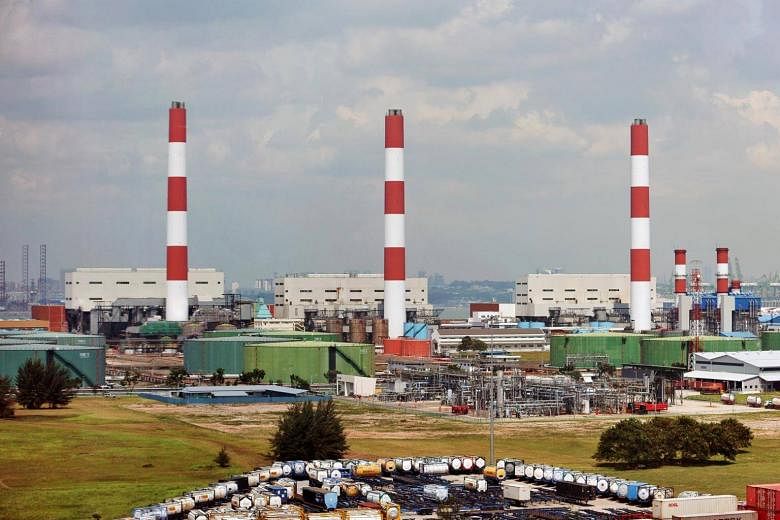Core inflation rose to 1.9 per cent in July - its highest level in nearly four years - according to figures released by the Monetary Authority of Singapore (MAS) and Ministry of Trade and Industry (MTI) yesterday.
This was due to a steeper rise in electricity and gas prices. But it did not change consumer price index (CPI) inflation for all items - which remained at 0.6 per cent year on year - as the increase was offset by a dip in private road transport costs and lower services inflation, MAS and MTI said in a statement.
Looking ahead, however, imported inflation is likely to rise, with an uptick in global oil prices since the start of 2018. Global food commodity costs are also projected to increase as demand strengthens.
Domestic sources of inflation are expected to grow too, alongside a faster pace of wage growth and pickup in domestic demand.
But the authorities added: "The extent of consumer price increases will remain moderate, as retail rents have stayed relatively subdued and firms' pricing power may be constrained by market competition."
The rise in July core inflation - which excludes the costs of accommodation and private road transport - comes days after Prime Minister Lee Hsien Loong acknowledged Singaporeans' worries about cost of living in his National Day Rally speech on Sunday.
He flagged price increases, the concerns of young families and those caring for both children and elderly parents, as well as lifestyle changes as reasons why people are feeling the pinch, pledging that the Government will do its part to ease concerns.
According to the latest figures, the cost of electricity and gas spiked 12.7 per cent last month - up from a 3.7 per cent increase the month before. This reflects an upward revision of electricity tariffs after a pickup in global oil prices in the preceding quarter.
In contrast, private road transport costs dipped 0.2 per cent, reversing a 0.4 per cent increase in June.
With smaller year-on-year increases in the cost of education and healthcare services, as well as airfares and domestic services fees, services inflation slipped to 1.5 per cent, from 1.7 per cent in June.
Food inflation came in at 1.5 per cent, unchanged from June, and the cost of accommodation slid by 3 per cent, the same rate it did in June.
Meanwhile, core inflation is expected to rise gradually to average in the upper half of the 1 per cent to 2 per cent forecast range for the full year.
Separately, headline inflation is projected to come within the upper half of the 0 to 1 per cent forecast range for the full year. The CPI captures price changes and reflects the inflation experienced by households in their day-to-day spending.
SIM Global Education senior lecturer Tan Khay Boon said that while overall inflation is edging up, the higher core inflation, relative to headline inflation, also means that households will increasingly feel inflation pressures.
While the authorities expect imported inflation to rise mildly, Maybank Kim Eng economist Chua Hak Bin said he is not too worried about an inflation risk, given the potential impact of a full-blown trade war.
Yesterday, the United States slapped a 25 per cent tax on a second wave of goods from China worth US$16 billion (S$21.9 billion), and the Chinese retaliated in kind.
"If a full-blown trade war erupts, chances are there will be pullback on investments from companies and commodity prices like that of oil would probably fall," he said. There will also likely be a diversion of cheap Chinese goods through countries outside the US, adding to deflationary pressures.



